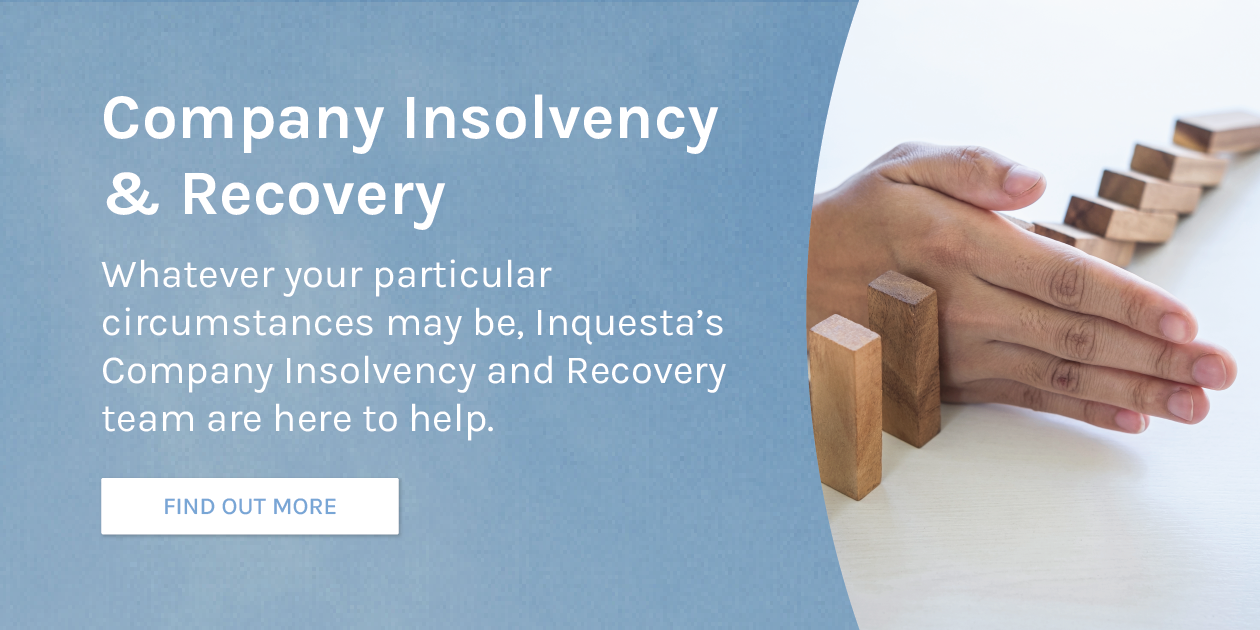The Main Principles Of Insolvency Practitioner
The Main Principles Of Insolvency Practitioner
Blog Article
What Does Insolvency Practitioner Mean?
Table of ContentsSome Known Questions About Insolvency Practitioner.Rumored Buzz on Insolvency PractitionerInsolvency Practitioner for DummiesMore About Insolvency PractitionerOur Insolvency Practitioner Statements
Whether you require to use an insolvency professional (IP) to liquidate your company depends upon various variables. While involving an insolvency professional for all kinds of liquidation is not a legal need, doing so can frequently enhance the process and guarantee conformity with legal needs. Liquidating a company is an essential choice that features substantial effects.
It is a procedure made use of when a company does not have any financial institutions, or every one of their lenders can be settled in complete with legal rate of interest. Comprehending the different kinds of bankruptcy procedures can aid you identify the most effective program of activity for your company's liquidation or various other formal bankruptcy procedures itself.
This is required in order to abide by lawful demands - Insolvency Practitioner. This is due to the fact that IPs have the required credentials and experience to guarantee that the liquidation process is carried out based on all applicable regulations and regulations. By engaging a certified insolvency expert, you can have peace of mind understanding that your business's liquidation process will be dealt with properly and in conformity with the appropriate legal needs
Facts About Insolvency Practitioner Uncovered
The bankruptcy professional is appointed as a liquidator and is accountable for taking care of the company and liquidator's financial obligations outstanding obligations and assets. This process entails selling the company's possessions and dispersing the earnings to creditors. Upon completion of the process, the firm is removed from the register at Business Home.
Falling short to do so can lead to individual responsibility for the firm or supervisor for the financial institution's debts. Voluntary liquidation, which includes Creditors' Voluntary Liquidation (CVL) and Members' Voluntary Liquidation (MVL), is initiated by the company's supervisors and investors when they can no more pay their financial obligations. In a CVL, the bankruptcy specialist is marked as the liquidator, in charge of managing business debts and all business properties.

Insolvency Practitioner Fundamentals Explained
By assessing the knowledge and experience of possible bankruptcy practitioners, you can make sure that you choose an expert who possesses the required credentials to handle your company's liquidation process successfully. While insolvency practitioner-led liquidation is frequently one of the most suitable strategy for companies encountering insolvency, there are different methods to consider, such as striking off and partial liquidation.
It's essential to evaluate all available choices before selecting the next finest remedy or strategy for your organization. Striking off companies' registers is an extra straightforward and cost-efficient way to shut dormant or small firms without any financial obligations or assets. To strike off a business, its name is removed from the Companies Home register by sending kind DS01.
Before going with striking off, it's vital to evaluate the benefits and downsides of this approach and take into consideration whether it's the ideal option for your organization. Partial liquidation is another choice to insolvency practitioner-led liquidation, where a firm liquidates specific possessions and liabilities while continuing to description operate with the continuing to be properties and liabilities.
An Insolvency Professional will certainly be able to advise you of the very best strategy to take and ensure that everything runs smoothly. Sadly, it is not possible to liquidate a business without a liquidator. Appointing an authorised insolvency professional is required for the process of voluntary liquidation to begin.
How Insolvency Practitioner can Save You Time, Stress, and Money.
It is feasible to close and liquidate your firm without utilizing a liquidator, offered your company is solvent and you meet the qualification demands to dissolve or liquidate it. If your firm is financially troubled, you may be required to make use of a liquidator and begin official insolvency treatments. Right here are some various other helpful short articles regarding company liquidation Check This Out in the UK:.
Remaining in a placement where you're not able to pay your firm's financial institutions is exceptionally stressful. In an effort to prevent enhancing the degree of debt, numerous firms try to discuss directly with their financial institutions and consent to an informal arrangement. If the financial obligation is quite tiny and owed to one financial institution, and the creditor is being participating, participating in an casual financial obligation plan is probably the very best remedy, rather than searching the internet for 'an insolvency expert near me'.
On the various other hand, if there are several financial institutions and the level of financial obligation is huge, financial institutions might not be so prepared or cooperative. To avoid liquidation or personal bankruptcy, it is better to employ a bankruptcy specialist to formulate formal propositions and work out with lenders in your place.
Fascination About Insolvency Practitioner
Whilst it is a means to take care of financial debt, there are significant threats entailed with this sort of financial obligation plan - Insolvency Practitioner. If a creditor wants to become part of a casual plan (IA) whereby the borrower has consented to make regular, if reduced, payments to settle the financial debt, it is very important to stick to the contract

As a result, the lender is within their rights to back out of the agreement and application the courts for your firm to be sold off any time. A formal arrangement that has actually been proposed by an insolvency practitioner on your part, and agreed by a creditor, supplies a much more secure choice.
Report this page